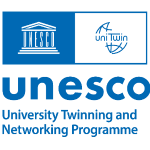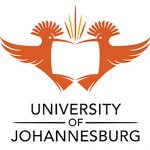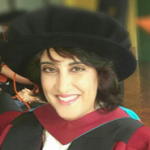UNESCO/UNITWIN CHAIR: Values Education
Home » Faculty of Education » Departments » Education and Curriculum Studies »UNESCO/UNITWIN CHAIR: Values Education – Learning to Live together.
The aim of the Chair’s function is to forge and nurture a network of researchers as well as important partners and groups who work in the field of Values Education. Associated with this aim is the teaching of values in formal as well as non-formal environments. The role of the Chair is to support the goals of UNESCO based on the “principles of inter-university cooperation, international networking, and intercultural dialogue.



UNESCO CHAIR AT UJ DELIVERS KEYNOTE ADDRESS
UNESCO Paris and UNESCO Nairobi recently invited Dr Nazreen Dasoo, who currently holds a UNESCO Chair in Values Education at UJ, to deliver a Keynote Address. The address was at a Global Citizenship Education (GCED) Webinar on Sustainable Development Goal (SDG) Target 4.7. The aim of the Webinar was to share case studies on the status of GCED implementation in six East African countries. These were Comoros, Djibouti, Kenya, Madagascar, Mauritius and the Seychelles.
In her speech entitled, “Global Citizenship Education and Values Education: Two sides of the same coin”, Dr Dasoo explained how GCED and Values Education has the potential, if implemented correctly, to facilitate ways to help young people manage and live democratically in increasingly diverse contexts. In addition, such programmes have the ability to show young people that being a global citizen means that you are proactive, creative, flexible and interdependent. Simply, that they become “citizens without borders” who actively contribute to building a more tolerant, peaceful, inclusive and secure world.
She went on to remind the audience that as global citizenship and values education evolved from mere policy edicts into actual, authentic practices, there is a deepened need to share best practices in order to understand what is working well. Therefore, it was befitting to applaud the panelists who were to present their reports for their work around GCED. They are at the forefront in mapping the impact and outcomes of global citizenship education in Africa. In closing, she shared the former UN Secretary-General, Ban Ki-Moon’s advice that, “Education gives us a profound understanding that we are tied together as citizens of the global community


UNESCO / UNITWIN CHAIR AT UJ DELIVERS YET ANOTHER KEYNOTE ADDRESS
Soon after her keynote address in October 2021, Dr Nazreen Dasoo, on invitation by UNESCO Paris and UNESCO Harare, delivered another keynote on the topic “The Revision of the 1974 Recommendation”. She addressed delegates of the regional technical consultation of Africa on how the 1974 Recommendation concerning Education for International Understanding, Co-operation, Peace, and Education relating to Human Rights and Fundamental Freedoms, may be revised. Her address on 6 April, focused specifically on new trends and understandings of peace and sustainable development in education. In her presentation, she responded to the following questions: In light of the sub-Saharan context, what are the new trends and understandings of peace and sustainable development issues? Are the topics addressed in the 1974 Recommendation up to date and relevant for the sub-Saharan region? What changes or additions are needed for the 1974 Recommendation? The regional delegates echoed her recommendations, and these insights would inform the development of the first draft of the revised Recommendation.
